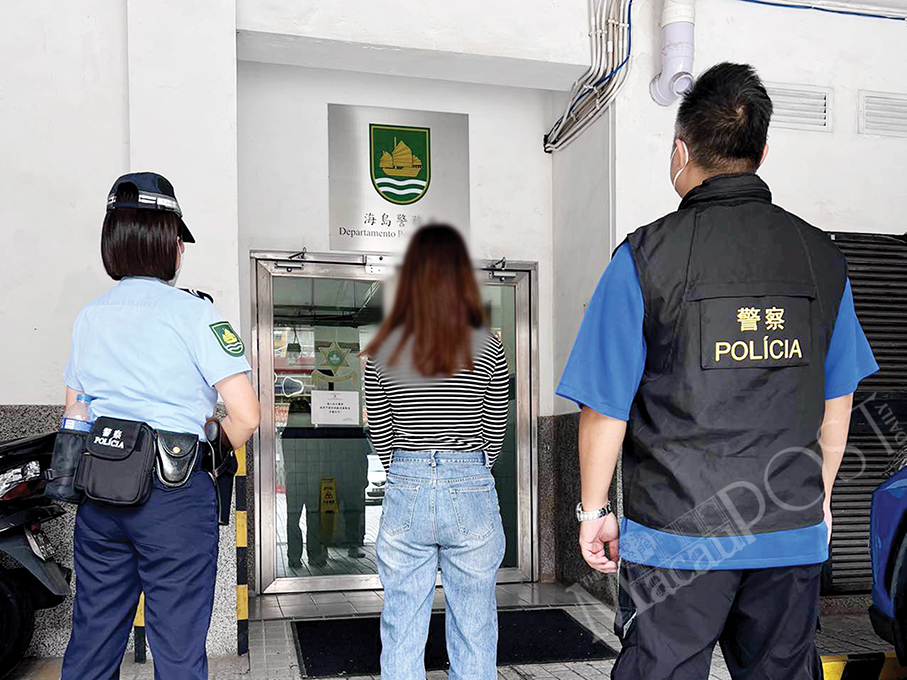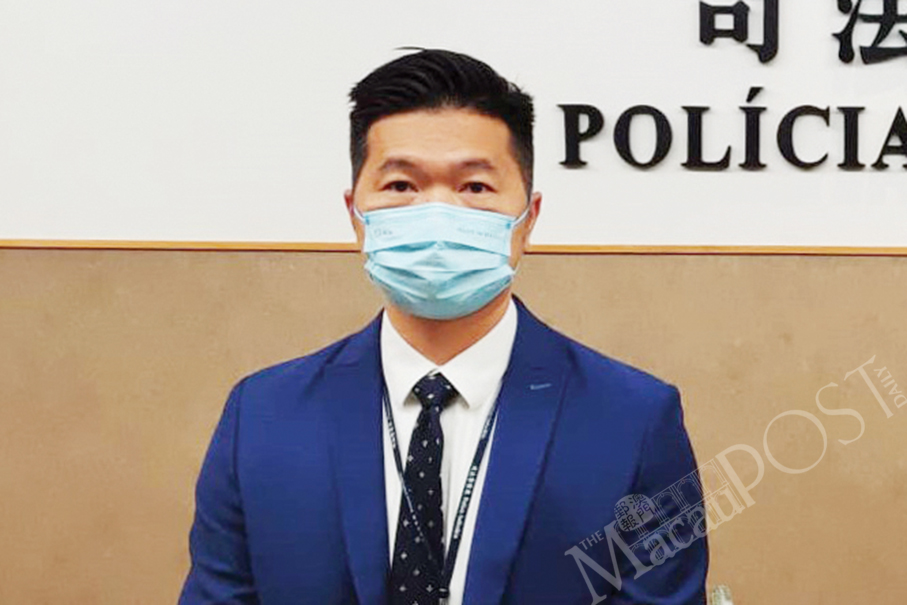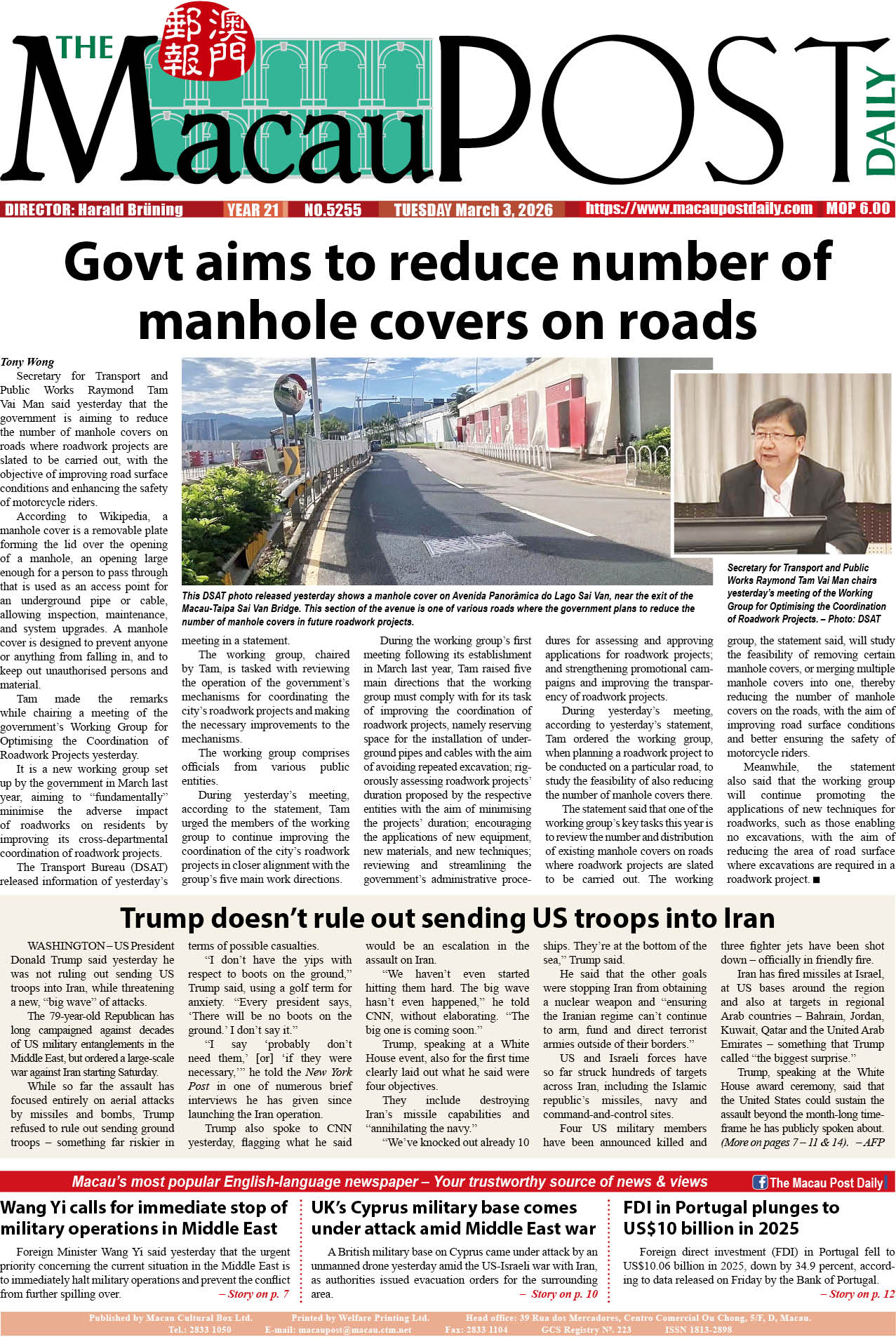Macau enters a six-day COVID-19-prevention stabilisation period today that aims to enable the city to gradually return to the normality that had been in force before the most recent outbreak, which began on June 18, while continuing to consolidate Macau’s achievements in its battle against the outgoing outbreak, as the government has concluded that the outbreak is basically over after its latest round of citywide nucleic acid tests (NATs), which was carried out on Saturday and Sunday, did not detect any positive results.
In addition to various relaxations of COVID-19 measures such as allowing restaurants to resume dine-in services, various kinds of entertainment venues that had been closed since June 23 can reopen from today, such as cinemas, snooker halls, beauty parlours, karaoke bars, and nightclubs.
Moreover, four groups of people are no longer required to undergo a daily COVID-19 nucleic acid test during the stabilisation period, namely security staff, restaurant staff, live-out domestic helpers, and construction-site workers.
Health Bureau (SSM) Director Alvis Lo Iek Long announced details of the measures to be implemented for the stabilisation period, which will run through Sunday, during yesterday evening’s daily press conference about the viral menace.
Various entertainment venues reopen
An executive order by Chief Executive Ho Iat Seng was promulgated in the Official Gazette (BO) yesterday morning, lifting the government’s special COVID-19 curbs that had been in force since June 23. According to yesterday’s executive order that took effect at 00:00 today, the various entertainment and recreation venues that had been closed since June 23 can reopen from today, namely cinemas, theatres, indoor playgrounds, amusement arcades, cybercafes, snooker halls, bowling alleys, saunas, massage parlours, beauty parlours, gyms, health clubs, karaoke bars, bars, nightclubs, discotheques, ballrooms, cabarets and public swimming pools.
From today, according to yesterday’s executive order, restaurants can again provide dine-in services, which had been banned since June 23.
According to a Government Information Bureau (GCS) statement yesterday, the government has decided to lift its special COVID-19 curbs that had been in force since June 23 after concluding that the COVID-19 transmission risk in Macau is now “significantly lower”, considering that Macau had had no community cases for nine consecutive days as of Sunday and no positive results were detected in the government’s latest round of mass nucleic acid tests, its 14th.
During yesterday evening’s press conference, Lo noted that Macau went through a 10-day COVID-19-control consolidation period that ran from July 23 through yesterday. Lo said that the government decided to start a six-day COVID-19-prevention stabilisation period today after Macau had had zero community cases for nine days in a row as of Sunday. Lo said that the stabilisation period aims to continue to consolidate Macau’s achievements in its fight against COVID-19 and prevent an outbreak from occurring again while enabling the city to gradually return to normality, before Macau can return to the pre-outbreak situation next Monday.
Lo said that three measures are implemented during the six-day stabilisation period. Firstly, those in high-risk key occupations are required to continue to undergo a nucleic acid test every day.
Secondly, Lo said, all those who leave home for work but are not in key occupations are required to undergo a nucleic acid test every three days during the stabilisation period, a relaxation from a test every other day during the then 10-day consolidation period.
Thirdly, Lo said, during the stabilisation period those who enter venues where people cannot always wear a facemask or need to stay for a relatively long time, such as restaurants, cinemas and tutorial centres, are required to display a COVID-19 NAT result valid for three days. The three-day NAT validity starts on the respective testee’s sampling day.
Before today’s commencement of the stabilisation period, failure to comply with the government’s mandatory wearing of facemasks when out and about had been a criminal offence since July 11. From today, the government continues to require people to wear a facemask when out and about by the Health Bureau’s guidelines published yesterday.
According to the guidelines published yesterday, all those aged three or over are required to wear a facemask when they are in public places or taking public transport, while all adults are required to wear a surgical facemask or those of higher standards. The wearing of facemasks is exempted in certain circumstances, such as eating and drinking, smoking, playing wind instruments, swimming, and receiving a facial at beauty parlours.
In addition, according to the guidelines, property management staff should request all those aged three or over who are staying in common areas of private buildings to wear a facemask.
Lo also announced that during the stabilisation period those in four occupations are no longer listed as high-risk key groups of people subject to a mandatory daily nucleic acid test, namely security staff, restaurant staff, live-out domestic helpers, and construction-site workers.
Consequently, Lo said, those in four other occupations, namely cleaning staff, food deliverers, public bus drivers and taxi drivers, and indoor renovation workers, continue to be listed as high-risk key groups of people who are required to undergo a nucleic acid test during the stabilisation period.
According to other guidelines published by the Health Bureau yesterday, restaurants’ dine-in patrons and those entering various venues are required to show a COVID-19 NAT result valid for three days. They include various entertainment venues such as cinemas, snooker halls, beauty parlours, karaoke bars and nightclubs, as well as tutorial centres, day nurseries and various other social service facilities.
Meanwhile, Lo also underlined that the government has concluded that the outbreak that began on June 18 is now basically over as Macau had had no community cases for nine consecutive days. But he was quick to add that an outbreak could be expected in the future. Consequently, Lo said, the government will improve its regular COVID-19 prevention measures that will be implemented during Macau’s normalised COVID-19 prevention and control period, which is scheduled to start on Monday next week, with the aim of detecting possible cases in the community as early as possible before the novel coronavirus starts to widely spread.
Lo also said that the local government “has been able to confirm” that the outbreak that began on June 18 was not caused by residents returning from outside, because of which, he said, the government surmises that the outbreak occurred after someone had caught the novel coronavirus from items imported into Macau.
Lo was quick to add that according to experiences elsewhere, it is always difficult for health authorities to confirm and verify such a situation – the novel coronavirus having entered the community from somewhere “due to such a situation”, i.e., through imported items.
Consequently, Lo also said that after Macau returns to its normalised COVID-19 prevention and control period on Monday next week, the government’s COVID-19 measures would possibly be different from the ones implemented before June 18.
For instance, Lo said, more occupations and professions would be subject to regular nucleic acid tests than before June 18.
Meanwhile, the Social Welfare Bureau (IAS) announced yesterday that creches can also reopen today.

Health Bureau (SSM) Director Alvis Lo Iek Long addresses yesterday’s press conference about the city’s COVID-19 situation. Photo: GCS








